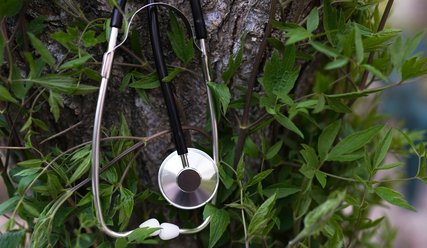‘I can see clearly now’
Republished with permission of New Zealand Doctor Rata Aotearoa. Subscribe to read more news from primary care.
When specialist GP Alison Fawdry (pictured above) was feeling a bit stuck and unsure what to do next in her career, she turned to her local RNZCGP faculty for help.
The Bay of Plenty/Waikato Faculty has run a mentorship scheme, Ka Hono, for nearly three years and Tauranga-based Dr Fawdry applied for a mentor.
A GP for 20 years and a practice owner for seven, Dr Fawdry, 52, is a GP registrar trainer and a local GP liaison. She has had leadership roles and sits on the faculty board.
“I was at a stage where I wanted to just have some space to be able to work out where I wanted to direct most of my attention to,” she tells New Zealand Doctor Rata Aotearoa.
She went online, looked at the mentors signed up to the scheme and chose retired GP Joanne Simson: “She’s about 10 years ahead of me [in her career], so that was quite helpful.”
The pair met in cafés, and talked about “what I was interested in and where I would like to put my focus.”
“My conclusion was that I really was passionate about mental health, so how was I going to pursue that? And in the context of where I’m at also outside of my [work] life, which is four teenagers who take up a lot of my time.”
She decided to take a step back from some of her leadership commitments and instead focus on specialising in mental health.
“The mentorship process was really helpful in clarifying where I wanted to go, where I wanted to put my energies.”
She says the mentorship process can be “useful at any stage of your career”
The beauty of general practice is the many different directions the career can take, she says. But “sometimes there can be so many strands, that it can be nice to have space to really think about what actually drives you and what’s going to be the best fit for your particular stage of life.
“It was very helpful to have somebody who understood the pressures of the job and had been in a similar position or done similar things, and was able to listen and provide encouragement and insights.”
Following the mentorship sessions – an hour every one or two weeks on five occasions – Dr Fawdry took on additional training to upskill in mental health. She has since become involved in governance of the local integrated mental health services and has spoken at GP symposiums about what she has learned.
Faculty chair Fiona Whitworth says Ka Hono has “trundled along relatively slowly, but steadily” and is ready to push for more uptake by both mentors and mentees.
“It’s completely free, it can be face to face, it can be on the phone, it can be on Zoom or video conferencing – it’s 40 minutes to an hour,” Dr Whitworth says. “You can choose who you see, you can choose how many sessions you want to do, and it’s there for support in your journey as a GP.”
She’s keen to dispel the notion that mentorship is for “people who are failing”, and instead promote the fact that most who have gone through the scheme so far have been experienced senior GPs. “It’s nothing to do with them failing or burning out, it’s about them thinking, ‘what next, what else can I do, what shall I do differently?’”
Some have been considering portfolio careers, or cutting back hours and moving towards retirement, or looking at buying into a practice. Others have been knocked back by a challenging consultation and needed help with their confidence and talking through the experience.
The Ka Hono scheme practises “unjudgemental professional regard”, Dr Whitworth says, meaning GPs can talk freely without being criticised or judged.
She’s hoping to encourage experienced GPs who’ve had “some degree of life experience” but not necessarily in the later stages of their career, to become mentors. Dr Whitworth is also keen to receive applications from mentees of any age and stage.
To enquire about the mentorship scheme, get in touch at KaHono@rnzcgp.org.nz


